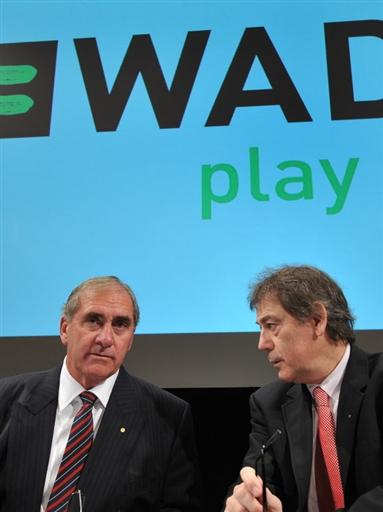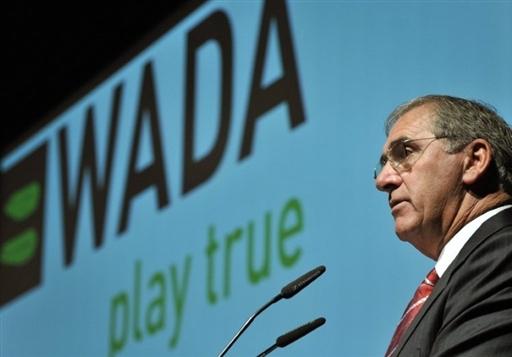WADA to work with border-control agencies ahead of London 2012 Olympics
Non-analytical controls crucial to fight against doping


WADA has announced that it will work closely with Interpol and border-control agencies in the lead-in to the 2012 London Olympics in order to complement its own existing anti-doping controls.
“That is without doubt, in my view, the future of the work that we do rather than saying we must do more tests," WADA president John Fahey told the Guardian in London. "It's far less expensive than taking blood and urine and going to laboratories."
Fahey explained that non-analytical controls may well be the future of the fight against doping. Some of the biggest doping scandals to hit cycling have came about through police involvement rather than traditional anti-doping controls.
The Festina affair of 1998 was triggered when team soigneur Willy Voet was apprehended crossing the Franco-Belgian border, while 13 riders were prevented from starting the 2006 Tour de France when they were implicated in the Operacion Puerto investigation, centred on the activities of Dr. Eufemiano Fuentes.
A federal investigation into allegations of systematic doping at the US Postal Service team is currently ongoing in the United States.
In Fahey’s home country of Australia, police assisted in the conviction of eight athletes for the possession of human growth hormone.
"They are now able to say that 14% of their positive outcomes are non-analytical," he said. "They don't have to test them, it's an offence to be in possession of those substances: game, set and match."
Get The Leadout Newsletter
The latest race content, interviews, features, reviews and expert buying guides, direct to your inbox!
WADA director general David Howman echoed Fahey’s view, and pointed out that traditional testing alone was not sufficient to combat doping.
"Look at the number of growth-hormone cases there has been through testing – very few," he said.
As the trafficking of doping products is a criminal offence, Howman believes that it is logical that law-enforcement agencies become more closely involved in the fight against doping.
"This is huge business for the criminal underworld, huge business,” he said. “They make more money in pushing steroids than they do in pushing other stuff. The same people are involved in illegal betting and corruption and bribery. We've got a lot of information in that regard.”
UK Anti-Doping chief executive Andy Parkinson said that the notion that simply increasing the number of tests would lead to a more effective anti-doping programme was outdated, and he welcomed the increase in cooperation with the UK Border Agency ahead of the Olympics.
"We're already working with the UK Border Agency and we expect to be having a formal agreement signed imminently,” Parkinson said. “We're working closely with our European colleagues, particularly starting to build up profiles before the 2012 Games because we recognise that there is a potential threat that could come through multiple routes into the UK."

Barry Ryan was Head of Features at Cyclingnews. He has covered professional cycling since 2010, reporting from the Tour de France, Giro d’Italia and events from Argentina to Japan. His writing has appeared in The Independent, Procycling and Cycling Plus. He is the author of The Ascent: Sean Kelly, Stephen Roche and the Rise of Irish Cycling’s Golden Generation, published by Gill Books.